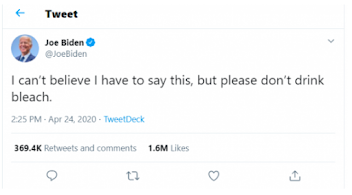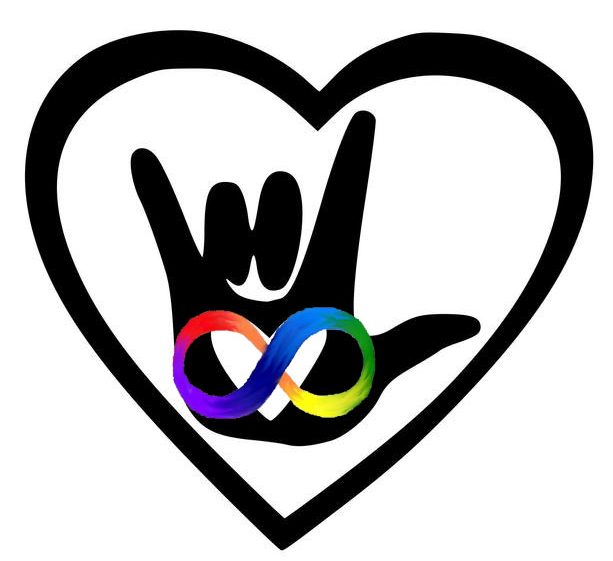
It took moms to hack the COVID quacks
Date:September 1, 2020
Author:Anne Borden King
“I am a Bishop of the Genesis II Church and you are harassing me. This is a sovereign church right here. … We’ve written the President. Jesus Christ is Lord and he is going to come back and he is going to save us from this evil empire!”
So shouted Jonathan Grenon to the U.S. federal agents serving papers demanding his company cease and desist from selling MMS, a bleach product that Genesis II had been promoting as a phony COVID-19 treatment. Operation Quack Hack, a project of U.S. government regulators and law enforcement, continues to crack down on Genesis II and others selling phony COVID-19 treatments.
The raids on the Grenon compound were the first major U.S. federal action against the Genesis II Church that has for years been peddling bleach as a cure for everything from autism to cancer. The pandemic accelerated the church’s profits; while the Grenon family earned $500,000 in all of 2019, it earned $123,000 in March 2020 alone. As the coronavirus pandemic spread, so grew the hubris of the scammers that profit from pseudoscience.
The Grenons’ ongoing defiance of court orders and the entire premise of their “church” may seem shocking and bizarre. But none of it is a surprise to the group of mothers who have been fighting tirelessly to stop Genesis II and other MMS sellers for years. The only surprise to them was why it took so long to arrest the Grenons.
The Genesis II Church and Kerri Rivera, among others, have been selling chlorine dioxide (marketed as “Miracle Mineral Solution or MMS) for more than a decade, with claims it can cure autism, cancer, diabetes and more. They not only profit from selling MMS but from seminars that they conduct worldwide. As Melissa Eaton, who has been closely monitoring Genesis II for years, notes: “It only takes 30 people to attend a seminar and that’s $15,000 in the Grenons’ pockets.”
Genesis II sometimes refers to the bleach as “sacraments,” selling $600 church memberships and promoting MMS directly within 139 countries. In July, the Bolivian Senate designated MMS as a treatment for COVID-19, authorizing its sale in pharmacies. This market penetration fits with the Grenons’ marketing goals as for years they have applied a missionary style to their salesmanship.

The Grenons even claimed to have reached out to U.S. President Donald Trump, who enigmatically announced at an April press conference that an “injection“ of disinfectant into the human body may be the answer to COVID-19. Although Trump walked back his comments in the following days, COVID-19 pseudoscience had penetrated public life in a new way. Poison control centres received hundreds of calls about using bleach as a COVID-19 treatment. Public Health officials scrambled to clear up communications. “I can’t believe I have to say this,” tweeted former U.S. Vice President Joe Biden “but please don’t drink bleach.”
The Grenons and other MMS sellers also have had prime promotional space on Facebook and other social media. For years, they have sold and promoted their products on public Facebook pages, in advertisements and in private social media “support groups” as well as YouTube channels. They also have cross-promotion with others such as Joseph Mercola’s “Natural News” website.
As Eaton notes, “A lot of their success is also from their multi-level marketing style: moms pulling other moms in. Some of these moms even run autism support group pages (on Facebook) and companies then give them a discount code for free product or income. So, they heavily promote these products with testimonies of ‘great’ results because they are generating an income from these followers. And there is a huge intersection of anti-vax pages where we see grifters … who have a huge following from promoting anti-vax misinformation. They are able to market the products that they sell as their pages grow, their followers grow and so do their customers.”
For pseudoscience sellers, Facebook support groups are a form of stealth marketing, designed to encourage people to buy more and more of the product through a comfortable in-group environment. “It’s an unchallenged echo chamber,” says Eaton, who has worked with other advocates to infiltrate “MMS for autism” support groups.
“It’s like a cult,” agrees Amanda Seigler, another mom who has been monitoring and reporting the groups for years.
Health Canada was a leader in early action against MMS peddlers, issuing warnings for years prior to a series of legal actions that resulted in the arrests of Sarah Nowak of Alberta and Stanley Nowak of British Columbia on charges related to marketing and selling MMS bleach as a tonic for a broad range of health conditions.
In the U.S., efforts to combat MMS were scattershot. In 2010, the FDA issued a warning letter on its website. Then in 2015, Daniel Smith was convicted and sentenced to four years in prison after a woman died from consuming MMS. Three years later, however, the FDA warning was inexplicably removed. Autistic activist Robert Gehrman organized a campaign to get the warning re-instated, which it was in August 2019.
“The MMS problem hadn’t gone away in that time,” says Eaton. “It had grown.”
In Europe, while Genesis II and other sellers were being identified by activist moms Emma Dalmayne (United Kingdom) and Fiona O’Leary (Ireland) in 2014, few in the media or regulatory communities focused on the need for action. Dalmayne faced disbelief when she reported to regulators and the media in 2015: “It was terrible,” says Dalmayne. “I’d phone newspapers up (about MMS) and they’d laugh, like ‘What?’ They didn’t believe it. It was too unbelievable. I actually got hung up on.”
Dalmayne created a petition to make phony autism cures illegal in the U.K. It garnered more than 60,000 signatures. Her early advocacy on autism pseudoscience established the groundwork for the government to work toward regulation and enforcement. The Westminster Commission on Autism’s report established that weakness in regulatory enforcement meant there was little recourse against MMS marketing: “Healthcare fraud is big business and autism is one of its many targets,” the report concluded.
Dalmayne’s campaign built on a broader movement in the autistic rights community and caught the attention of American moms Seigler and Eaton. The three organized and volunteered with other advocates, mainly from the autistic community, to document and report activities to local law enforcement agencies. (Disclosure: I have been involved in flagging and reporting in Canada since 2018).
Advocates volunteered their time and kept watch on other social media sites, convincing eBay and Amazon to ban MMS sales and encouraging PayPal to close the accounts of MMS sellers (PayPal cancelled MMS seller Rivera’s account, for example). But new sellers would reappear on eBay, requiring renewed efforts. YouTube took action to remove MMS from its site in 2019 with an explicit ban on MMS-related content.
In April 2020, the FDA issued warning letter against MMS sellers, including Rivera and the Grenons, as well as letters regarding off-label chelation, camels’ milk and other phony autism treatments. But moving beyond warning letters to enforcement was a big challenge.
Regulatory frameworks can be confusing to an expert, let alone to a layperson. In Canada, individuals can make complaints about “natural health products” such as supplements directly to Health Canada regulators through an online form. However, as Ryan Armstrong of Bad Science Watch notes: “Health Canada does not appear to have the capacity to monitor” as much as it needs to. The agency is also challenged by the saturation of the market with health misinformation and false product claims.
As Eaton says, “The dietary supplement industry is so big. Many of the products are not in stores. They’re promoted in places (regulators do) not expect.”
Unlike radio and television that have significant oversight into content and advertising claims, social media remains a largely self-regulating platform. As one study noted: “Each social media platform is effectively its own universe … a commercially independent entity (that) can at best only control content in its universe.” One platform may have a commitment to reviewing and removing content (e.g., YouTube), another may arguably be a complete free-for-all (e.g., Brighteon).
Research conducted by Press Gazette in July 2020 found that 4,094 of 7,295 misleading claims about the coronavirus originated on Facebook. In comparison, 1,066 false claims were traced to Twitter, 999 on WhatsApp, 265 on YouTube and 90 on Instagram.
Relying on self-regulation means we are relying on the good intentions of the platforms themselves. Brighteon, Telegram and other platforms have made clear they have no intention of censoring content — and despite its promises, Facebook is not adequately filtering out misinformation. The other choice is to push for legislation to regulate social media in ways similar to radio and television marketing and advertising. In that, we will need political will from our policymakers.
Weeks after he screamed at federal agents, Jonathan Grenon was jailed and charged with conspiracy to defraud the U.S. and distribute mislabelled drugs. Then on Aug. 11, Mark and Joseph Grenon were apprehended by military police while in hiding in Colombia. They are being extradited to the U.S. to face a host of conspiracy-related charges.
“Now that we have some action against Genesis II,” says Eaton, “what we need to move toward is getting legislative and systemic change in place.”
It’s going to take time, resources and immense creativity to combat this problem. But it’s not too late. Advocates like Eaton and her community, the original quack hacks, exemplify why it’s important to have many hands on deck when identifying and confronting pseudoscience.


